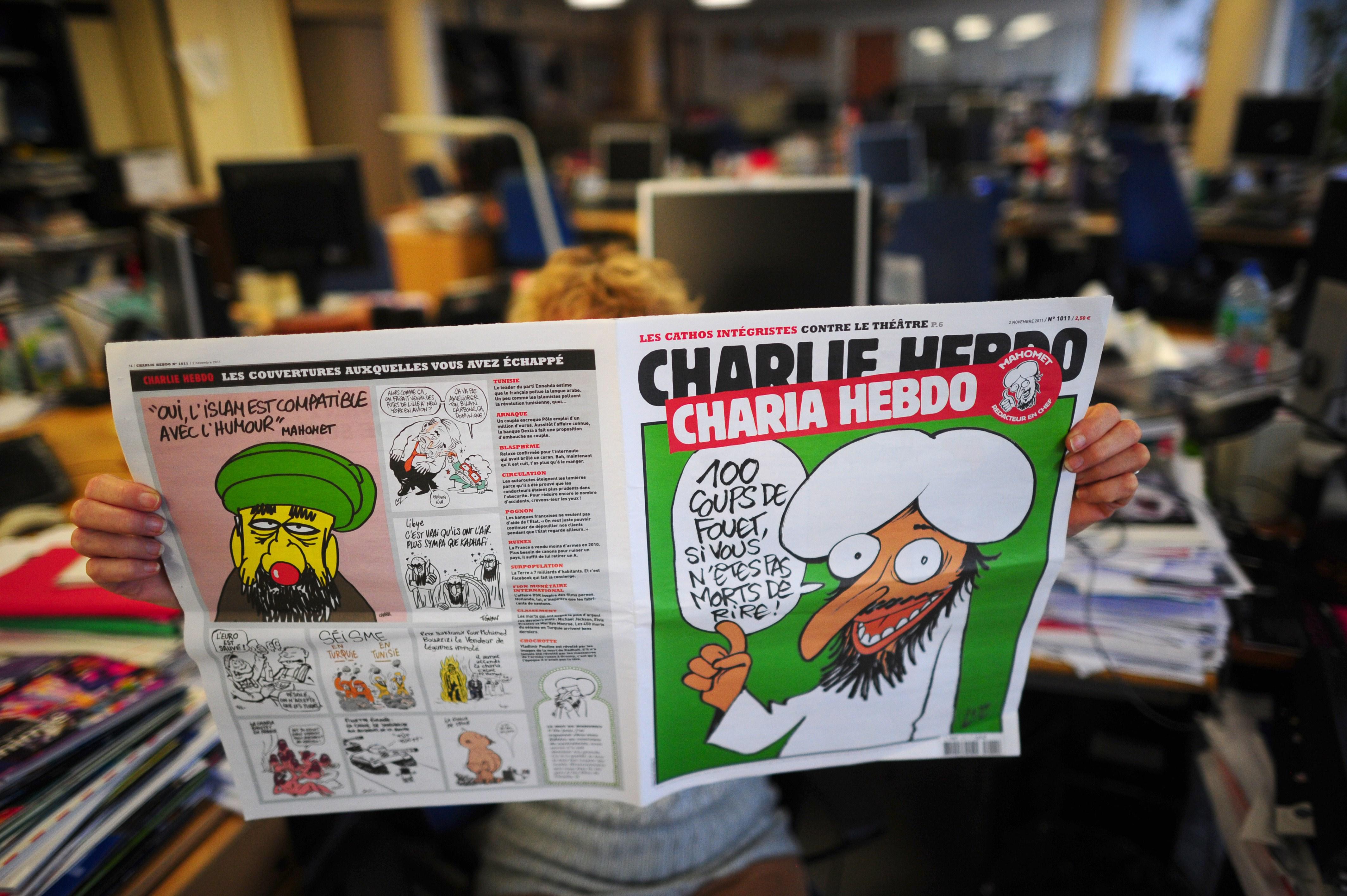This weekend, six writers—Rachel Kushner, Michael Ondaatje, Peter Carey, Teju Cole, Francine Prose, and Taiye Selasi—withdrew from the PEN America gala in very public protest. The organizers of the event, a black-tie affair tied to PEN’s annual World Voices Festival, had announced plans to honor Charlie Hebdo with a Freedom of Expression Courage award.
In an email to PEN, Rachel Kushner wrote that she disagreed with the “forced secular view” that Charlie Hebdo represents. Peter Carey told the New York Times: “I did not wish to have my name, without my knowledge or prior approval, publicly linked to a political position I did not hold.”
The PEN boycott has triggered something of a literary firestorm, much of which felt like a retread of conversations spurred by the Paris massacre. Some sided with the authors and expressed concern over the way Charlie Hebdo has targeted France’s oppressed Arab population. Some supported PEN and invoked freedom of speech. Salman Rushdie took to Twitter, combining questionable tone with a Pirandello reference: “The award will be given. PEN is holding firm. Just 6 pussies. Six Authors in Search of a bit of Character.” Sure, neither side’s arguments are particularly useful. But boycotting the PEN gala may be the least productive way to condemn Charlie Hebdo’s tactics.
Ironically, the best argument against the boycott may have come from Teju Cole himself. In his exceptionally sharp response to the attacks, published on the New Yorker’s website in January, Cole noted the crucial difference between defending freedom of speech in abstraction and holding up its most strident and hateful examples as ethical models. “It is possible to consider Islamophobia immoral without wishing it illegal,” he wrote. “Moments of grief neither rob us of our complexity nor absolve us of the responsibility of making distinctions.”
Discussion about free speech often devolves into binaries, ruled by a “with us or against us” logic. But an awards ceremony is a uniquely bad arena for First Amendment debates. As a species, awards shows are fundamentally not about having meaningful conversations. For the sake of showmanship they collapse complexity, rather than encouraging it. Whether it’s the Oscars or the Grammys or PEN, this pageantry is mostly about self-congratulation and assuming shared values, leaving room only for unilateral back-patting and praise.
This makes them pretty much the worst possible venue for hashing out a subject that requires so much nuance and has historically been treated with such clumsy, broad strokes. So even if it was not the wisest decision for PEN to use its awards ceremony as an opportunity to honor Charlie Hebdo, boycotting the event in dramatic fashion is still doing more harm than good.
